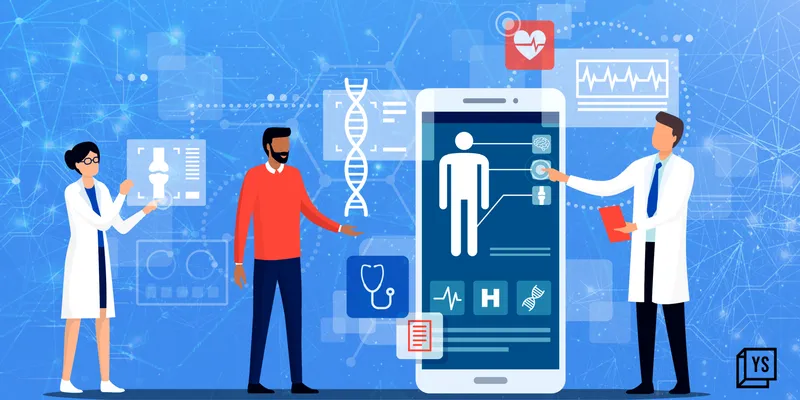How AI and data analytics are redefining new possibilities in patient care
When AI and data analytics are thoughtfully integrated into healthcare, they promise more than just progress—they offer the possibility of a future where timely and personalised care is accessible to all at an affordable cost.
Access to quality healthcare remains a global challenge, but AI and data analytics are unlocking powerful solutions to improve patient access, and health outcomes and reduce treatment costs. While the healthcare industry generates vast amounts of data—from patient histories to genetic profiles—much of it remains underutilised. A 2024 market study found that 47% of healthcare data goes unused in decision-making, highlighting that having data is only half the battle—understanding and leveraging it is where the real value lies.
Traditional data sources such as drug discovery, clinical trials, claims, sales, and other syndicated data are often siloed, limiting their full potential. Additionally, digital transformation has introduced new data streams, such as IoT devices and digital interactions, providing a richer, more comprehensive view. AI technologies, such as machine learning, deep learning and generative AI, are now able to process vast amounts of both structured and unstructured data, automating tasks and uncovering critical insights.
AI also helps create a unified view of fragmented data, ensuring that healthcare providers, payers and life science companies can make more informed decisions and improve care delivery. By unlocking the full potential of healthcare data, AI is driving innovation and enabling better, more efficient care for all.
Connecting the dots from fragmented data
Rather than manually navigating between systems, AI tools integrate and process the data in real-time, giving doctors, nurses, and specialists a complete view of a patient's medical history, and current condition, highlighting potential risk and recommending personalised treatment plans.
For example, AI can analyse a patient's medical records alongside their imaging data, genetic profile, and lab results to uncover patterns that might have been overlooked by the human eye. The result is not just a snapshot of a patient's current health but an evolving, dynamic understanding that includes potential future conditions, personalised treatment recommendations, and even early warnings of emerging health risks.
Moreover, AI's capacity to continually learn means that as more data is collected, the system becomes even more precise and predictive. It can identify trends and correlations that might not be immediately obvious. In this new world, learnings from isolated data sources can be brought together, and all the pieces of a patient's health puzzle are assembled, the potential for improved patient outcomes—spanning various phases—is immense.
Let's look at how these insights impact the overall patient journey.

Impact of AI-driven data insights
Disease prevention
- Personalised care: AI uses individual profiles and health factors to provide personalised health risks and preventive recommendations.
- Real-time monitoring: AI uses information from wearables and offers ongoing health analytics for driving early intervention.
- Lifestyle guidance: AI delivers personalised suggestions on diet, exercise, and lifestyle
- Targeted outreach: AI-driven social campaigns can direct critical health messages to at-risk populations.
- Predictive public health analytics: AI can anticipate disease outbreaks by examining public datasets.
Diagnostic accuracy
- Early identification: AI algorithms interpret patient data to identify rare diseases.
- Testing and imaging precision: AI-powered diagnostics enhance the accuracy of tests and imaging results.
Treatment and accessibility
- Remote patient care: AI-enabled platforms bring together patients and healthcare providers remotely.
- Personalised treatment: AI helps assess clinical and genetic data for creating customised patient care plans.
- Streamlined processes: AI reduces administrative tasks, such as billing and record-keeping.
- Clinical decision-making: AI provides evidence-based data analytics to make smart treatment decisions.
- Robotic-assisted surgery: AI-guided robotic systems bring accuracy to surgical procedures.
- Accelerated drug discovery: AI is being used to make drug discoveries faster and cheaper simulating molecular interactions.
Long-term disease management
- Adherence to treatment plans: AI monitors symptoms and schedules reminders for patients to follow their care plans.
- Remote monitoring: AI-based IoT devices track vital signs to monitor remote patients and recommend action.
- Smart patient engagement: AI-powered apps and portals support self-management for patients in their health journey.
It sounds like the perfect system, right? We will get there if we can manage the risks and challenges that come with using AI and data analytics.
Protecting privacy and ethics in AI-driven healthcare
Imagine a scenario: a patient enters a hospital, and their entire medical history is integrated into a single digital record. This data is then processed by AI algorithms, which help the medical team determine the best course of treatment. Every piece of data gathered and examined could be a potential target for cyberattacks or unauthorised access.
Today, the stakes have never been higher. Data breaches or even minor lapses in security could have devastating consequences for the healthcare provider and the individuals whose lives are at the centre. Patients need to know that their information is being managed with the utmost responsibility, with the required security and privacy measures.
AI in healthcare also faces the hurdle of biased data. Algorithms are only as good as the data they're trained on. If the dataset used to train an AI system is incomplete or lacks diversity, the results can be skewed. This becomes especially problematic in healthcare, where decisions made by AI can impact the diagnosis and treatment of patients.
Shaping the future of patient care
As the world stands on the precipice of a new era in healthcare, AI's potential is undeniable. Yet, the challenges of data availability, security, privacy, and bias cannot be ignored. While these obstacles are significant, industry leaders, academia and government agencies are collaborating to find innovative solutions—whether through synthetic data to protect patient identities, the development of ethical AI frameworks to ensure fairness, or the establishment of new data-sharing regulations to safely exchange health information.
It's clear that the future of AI lies in how healthcare players choose to navigate these complexities. When AI and data analytics are thoughtfully integrated into healthcare, they promise more than just progress—they offer the possibility of a future where timely and personalised care is accessible to all at an affordable cost.
(Pratyush Kumar is Senior Director, Analytics Consulting at Tiger Analytics.)
Edited by Kanishk Singh
(Disclaimer: The views and opinions expressed in this article are those of the author and do not necessarily reflect the views of YourStory.)








